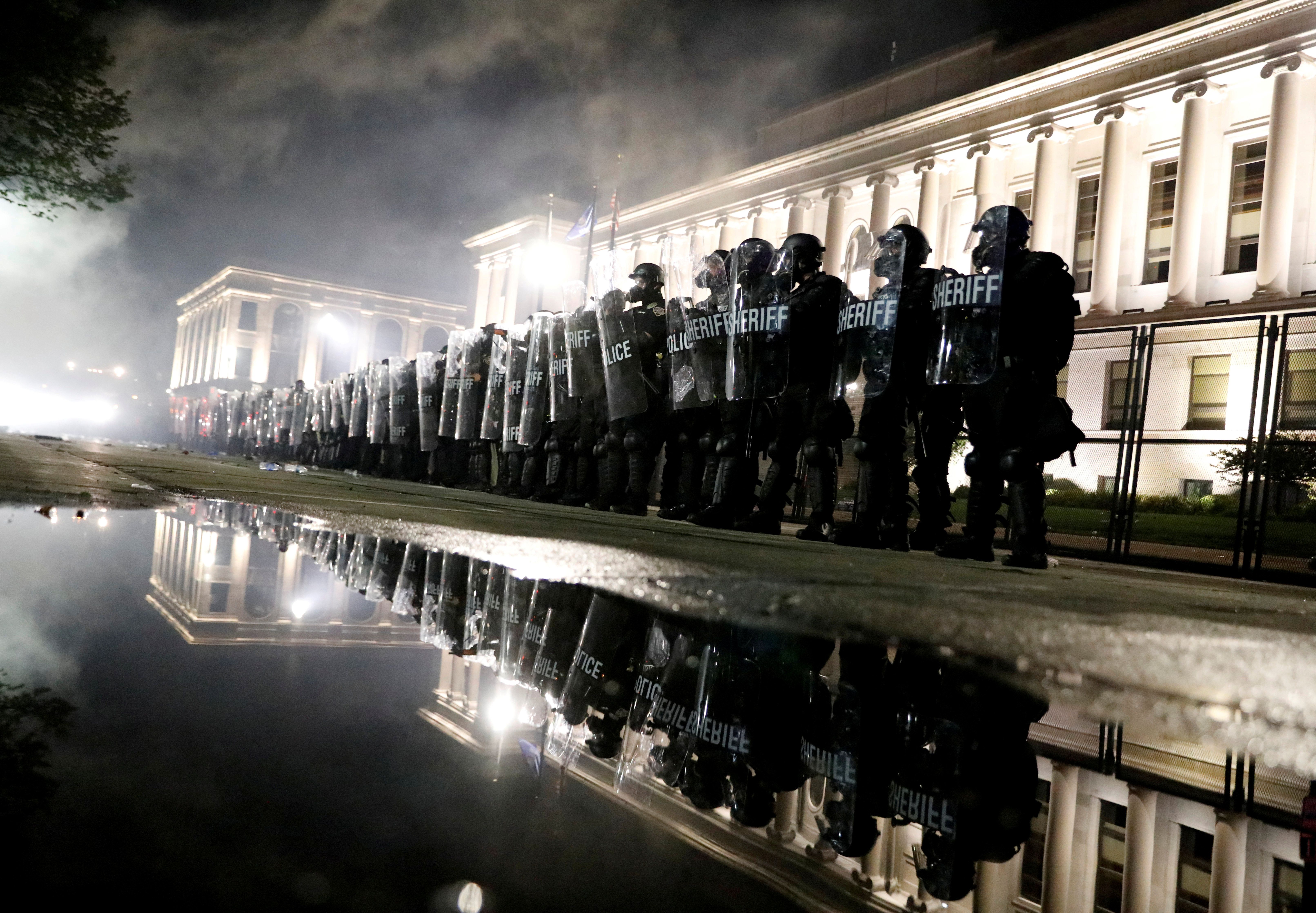Chaos and anti-racism riots in Wisconsin: A white teenager was arrested Wednesday on murder charges a day after killing at least one of two people shot dead amid street protests over the police shooting of an unarmed Black man in the US city of Kenosha, Wisconsin. Also on Wednesday, the NBA postponed several playoff basketball games after players for the Milwaukee Bucks, Wisconsin's home team, went on strike to protest racial injustice. Although the exact details are still unclear, the two killings occurred after a group of armed civilians — which police described as vigilante militia groups — clashed with protesters once police had cleared the area to enforce a curfew. The protests were sparked by the case of 29-year-old Jacob Blake, who has been left paralyzed after being shot seven times in the back by a white police officer on Sunday. We're watching to see if the protests and riots spread to other parts of the country as was the case back in June, when the killing of George Floyd (also a Black man) by a white police officer in Minneapolis ushered in a wave of mass rallies calling for a national reckoning on racial justice and police brutality, including proposals to reform the police itself in many US cities (and around the world, too). The unrest in Kenosha also takes place as the US presidential election campaign ramps up — President Trump will likely push his tough law-and-order approach to dealing with violent protesters to draw a contrast with his opponent Joe Biden, whom Trump wants to portray as soft on crime.
Coronavirus in Gaza: The Gaza Strip has been placed under lockdown for 48-hours after community transmission of COVID-19 was detected there for the first time. Until now, all known cases in Gaza were linked to quarantine facilities where travelers returning from abroad were required to remain in isolation for 21 days. But these new cases — and one death —were all linked to a family living in the al-Maghazi refugee camp with no known travel record. To date, blockades and restrictions on movement imposed by Israel have spared the impoverished Strip, run by the militant group Hamas, from widespread infection. Gaza, home to over 2 million people, hosts some of the most densely populated refugee camps in the world, where social distancing is impossible. Coupled with a crippled healthcare system, poor sanitation and regular power outages, a deadly outbreak of disease in the enclave would be catastrophic, health experts warn.
China keeps Xinjiang locked down: Residents of China's northwestern Xinjiang region are fed up with the draconian measures that authorities have continued to impose to stop the spread of the coronavirus, despite the fact that the region has not registered a positive case for more than a week. After several COVID-19 outbreaks were reported there in late July, Beijing ordered a sweeping lockdown in Xinjiang, with harsh restrictions such as punishing violators by handcuffing them to their homes or forcing ethnic Uighur residents — who have long been victims of human rights violations by the Chinese government — to take traditional Chinese medicine to ward off the coronavirus. What's more, the strict stay-at-home order remains in place despite the fact that the region has not registered a positive case for more than a week. Xinjiang residents can't take it anymore, and have gone to social media to vent their frustration. Although the lockdown is roughly similar to the one China imposed in Wuhan to contain the first outbreak of COVID-19 back in February, its duration and severity have prompted concerns that Beijing is being too harsh on its anti-coronavirus strategy in Xinjiang, where community services are not as developed as Wuhan's, so people banned from going outside to buy food are often left hungry in their own homes.
More For You
As expected, the Supreme Court struck down the bulk of Donald Trump's sweeping “Liberation Day” tariffs as illegal … and almost nothing changed.
Most Popular
What’s Good Wednesdays™, February 25, 2026
Small businesses at a crossroads
Chris, an Army veteran, started his Walmart journey over 25 years ago as an hourly associate. Today, he manages a Distribution Center and serves as a mentor, helping others navigate their own paths to success. At Walmart, associates have the opportunity to take advantage of the pathways, perks, and pay that come with the job — with or without a college degree. In fact, more than 75% of Walmart management started as hourly associates. Learn more about how over 130,000 associates were promoted into roles of greater responsibility and higher pay in FY25.
Somewhere in the Donbas region, Ukrainian soldier Artem Bondarenko says he hasn’t slept through the night in months as he defends Eastern Ukraine.
In the latest episode of Vladimir Putin and Xi Jinping's hit wellness podcast This Authoritarian Life, we learn how positive communication patterns can break negative cycles in our relationships -- especially our relationships with Iran, Syria, Venezuela, and Cuba. #PUPPETREGIME
